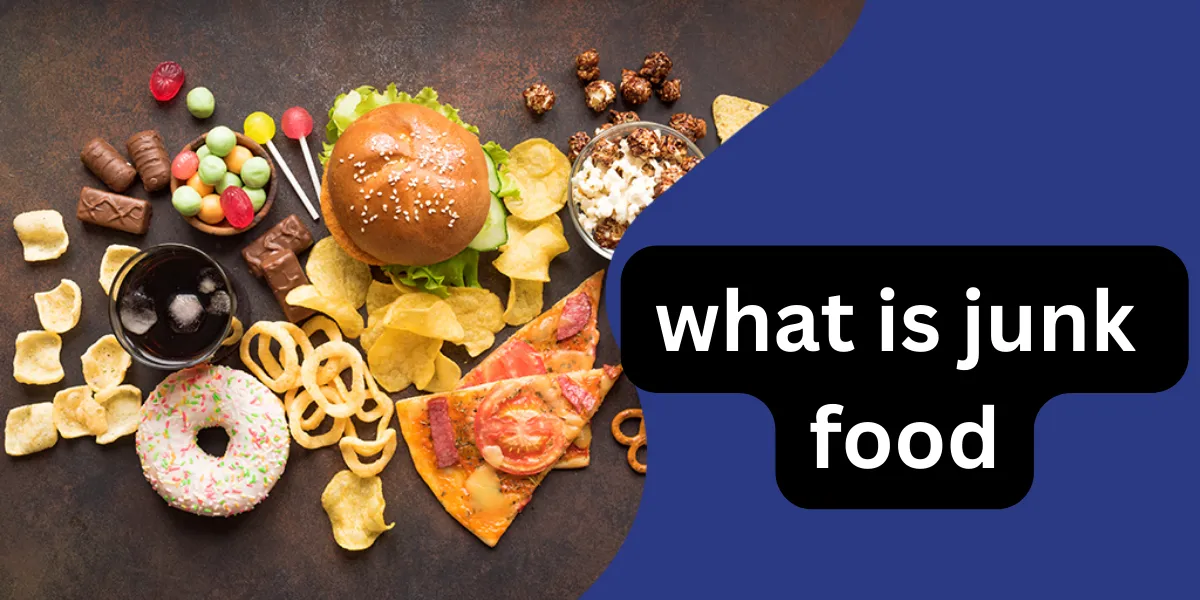What Is Junk Food-The Detrimental Effects of Junk Food on Our Health
In today’s fast-paced world, junk food has become an integral part of our modern diet. Its appeal lies in its convenience, affordability, and often irresistible taste. However, the rise of junk food consumption has raised concerns about its impact on our health.
With the increasing rates of obesity, chronic diseases, and overall declining health, it is crucial to understand the detrimental effects that junk food can have on our well-being. This article delves into the various aspects of junk food and explores its profound influence on our health.
The Composition of Junk Food:
Junk food is characterized by its high levels of calories, unhealthy fats, sugar, and sodium. These foods are typically low in essential nutrients such as vitamins, minerals, and fiber. The ingredients used in the production of junk food often undergo extensive processing, resulting in the loss of natural nutrients and the addition of artificial additives. Furthermore, the excessive use of artificial flavors, colors, and preservatives is common in the production of junk food, further compromising its nutritional value.
Weight Gain and Obesity:
One of the most significant health concerns associated with junk food consumption is weight gain and obesity. Junk food is calorie-dense, meaning it contains a high number of calories relative to its nutritional value. Consuming excessive calories without meeting our nutritional needs leads to an energy imbalance, resulting in weight gain over time. The combination of unhealthy fats, sugars, and refined carbohydrates found in junk food contributes to this caloric excess, as these ingredients are often digested quickly, leading to overeating.
Obesity is a complex condition with far-reaching consequences. It increases the risk of developing numerous health problems, including type 2 diabetes, cardiovascular disease, high blood pressure, certain types of cancer, and musculoskeletal disorders. The excessive consumption of junk food, combined with a sedentary lifestyle, compounds these risks, creating a concerning cycle of declining health.

Cardiovascular Health:
Junk food consumption has a detrimental impact on cardiovascular health. The high levels of unhealthy fats, particularly trans fats and saturated fats, found in many junk food items contribute to the development of atherosclerosis, a condition characterized by the buildup of plaque in the arteries. This plaque restricts blood flow, leading to an increased risk of heart disease, heart attacks, and strokes.
Additionally, the excessive sodium content in junk food can raise blood pressure levels. High blood pressure, or hypertension, is a leading cause of cardiovascular diseases. Consuming a diet high in sodium can disrupt the balance of fluids in the body, strain the heart, and contribute to the development of hypertension.
Metabolic Disorders and Diabetes:
Junk food consumption plays a significant role in the development of metabolic disorders such as insulin resistance and type 2 diabetes. Regularly consuming foods high in refined carbohydrates and added sugars can lead to spikes in blood glucose levels. Over time, this can impair the body’s ability to regulate blood sugar, leading to insulin resistance—a condition where the body becomes less responsive to the effects of insulin, the hormone responsible for glucose regulation.
Insulin resistance is a precursor to type 2 diabetes, a chronic condition characterized by elevated blood sugar levels. The excessive consumption of junk food, particularly sugary beverages, has been strongly linked to the development of diabetes. This disease not only has severe health consequences but also places a significant burden on healthcare systems worldwide.
Effects on Mental Health:
While the physical health implications of junk food consumption are well-documented, its impact on mental health is equally concerning. Research suggests that a diet high in processed and sugary foods is associated with an increased risk of developing mental health disorders such as depression and anxiety. The exact mechanisms underlying this relationship are not yet fully understood. However, it is believed that the lack of essential nutrients in junk




